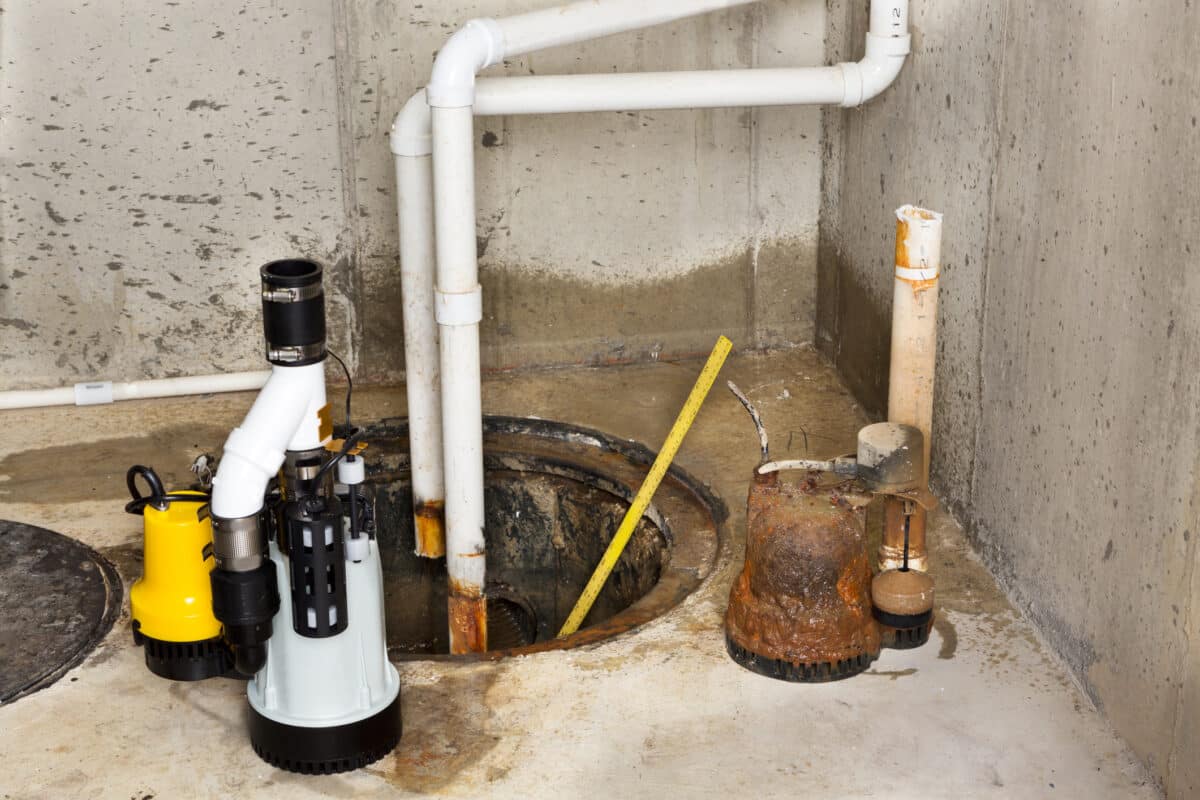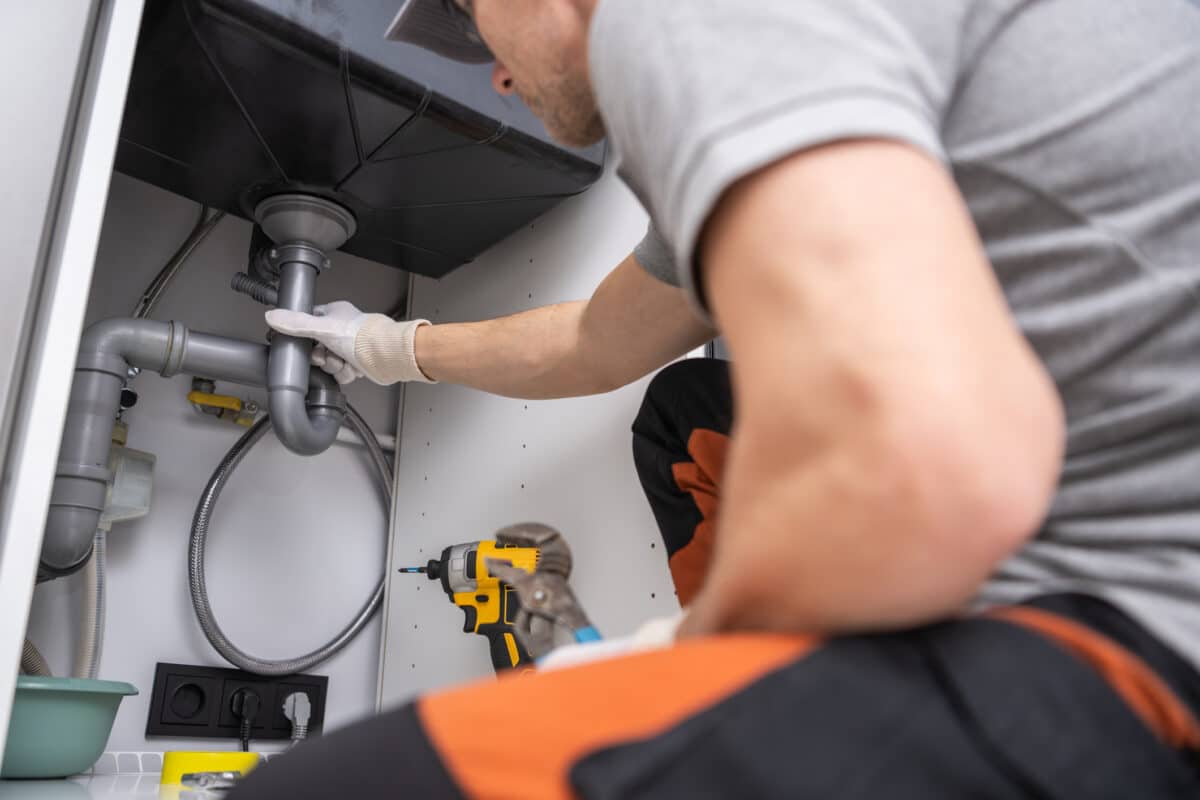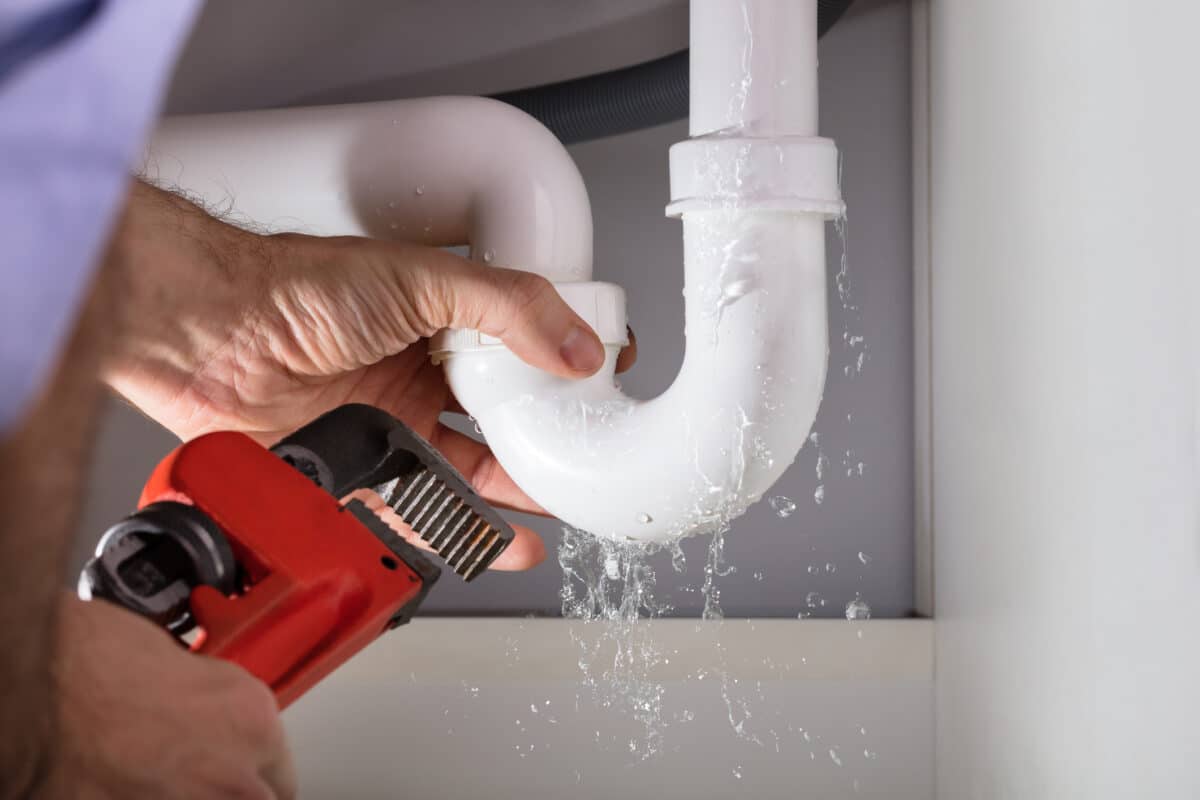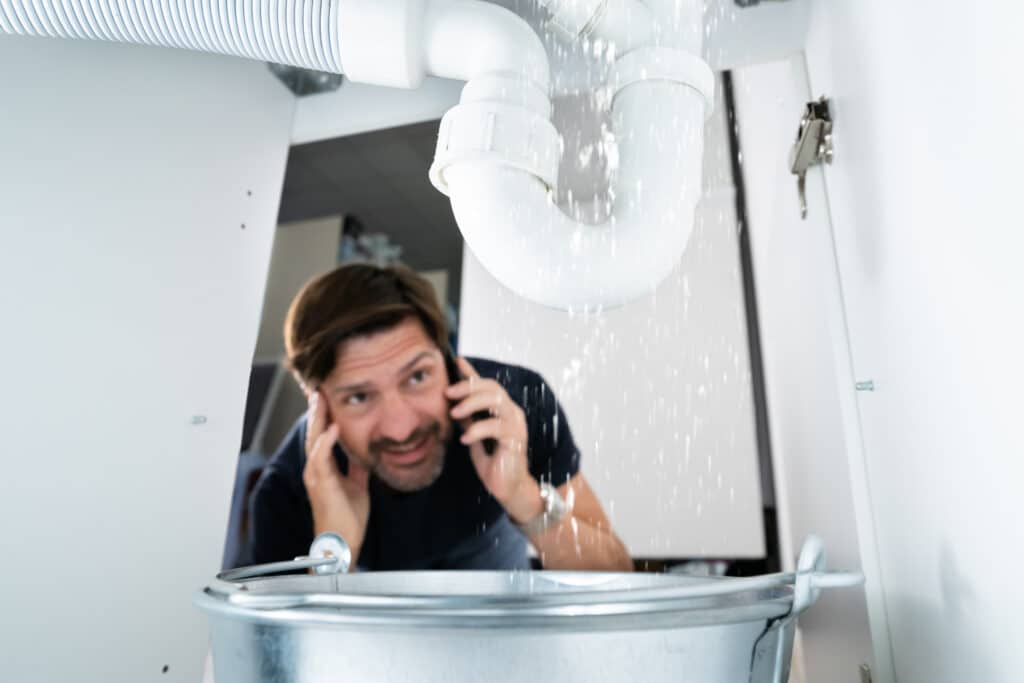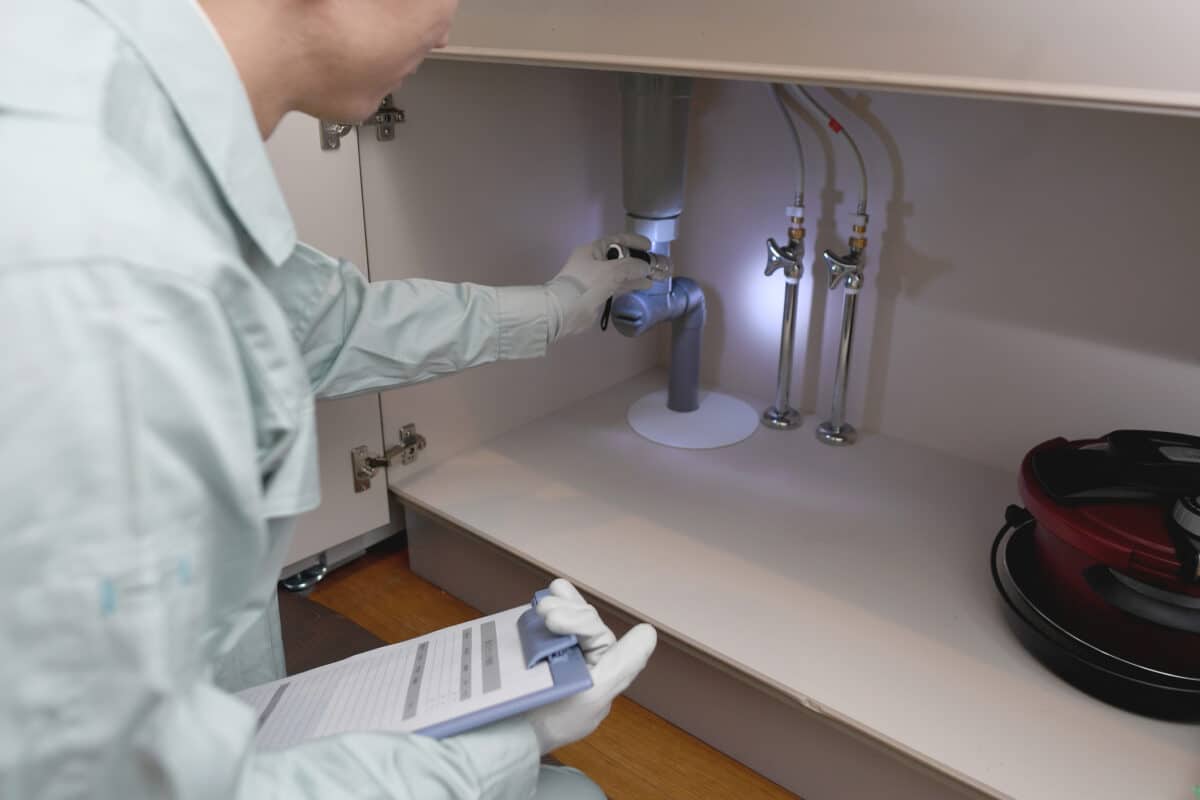Sump Pump Essentials for Henderson Residents
Understanding the importance of a sump pump in your home is crucial, especially for residents in areas like Henderson and Paradise, where unexpected weather can lead to unwanted water in your basement or crawl space. This device, essentially a water pump designed to remove accumulated water, is your first line of defense against flooding, protecting your home’s foundation and keeping your basement dry. Choosing the right sump pump, however, can feel overwhelming with various models and features available on the market. It’s important to find one that suits your home’s specific needs to ensure maximum protection.
Installing a sump pump is a step that shouldn’t be taken lightly. Proper installation ensures that the pump operates efficiently, preventing water from pooling and causing damage to your property. Whether you’re in the bustling city of Henderson or the serene surroundings of Paradise, ensuring your sump pump is correctly installed can save you from a lot of headaches and potential water damage. This is where professional advice and service can make all the difference, guiding you through the process with ease.
Maintaining your sump pump is just as critical as choosing and installing one. Regular maintenance checks can prevent malfunctions and extend the life of your pump, ensuring it’s ready to protect your home when you need it most. Simple actions like checking the operation, cleaning the inlet screen, and ensuring the discharge line is clear can save you from future flooding issues. These steps are essential for keeping your home safe and dry, no matter where you live in the Las Vegas area.
In conclusion, understanding the essentials of a sump pump from selection and installation to maintenance is key for residents in Henderson and Paradise looking to safeguard their homes from water damage. With the right approach, you can ensure your sump pump is a reliable guardian against flooding, offering peace of mind and protecting your home for years to come. Whether you’re installing a new system or maintaining an existing one, the importance of this device cannot be overstated in keeping your basement dry and your foundation secure.
Understanding the Importance of a Sump Pump in Henderson
Choosing the right sump pump for your home in Henderson involves understanding the specific needs of your property. Factors such as the size of your basement or crawl space, the level of water accumulation, and the frequency of heavy rains play a crucial role. It’s wise to consult with professionals who can assess your situation and recommend a pump that matches your requirements. This ensures your sump pump will efficiently manage water, keeping your home safe and dry.
Installing a sump pump is a task that demands precision and expertise. Incorrect installation can lead to poor performance, leaving your property vulnerable to water damage. In Paradise, where weather can be unpredictable, having your sump pump professionally installed guarantees it works effectively. Professionals ensure the pump is correctly positioned and the discharge lines are properly routed, preventing any future issues.
Maintaining your sump pump is essential to ensure it operates when you need it most. Regular checks can identify potential problems before they escalate, such as clogs or mechanical failures. Homeowners should make a habit of inspecting their sump pump at least annually, paying close attention to the float switch and the battery backup, if applicable. This proactive approach minimizes the risk of malfunction, especially during critical times of heavy rainfall.
In conclusion, the journey to safeguarding your home from water damage with a sump pump involves selecting the right model, ensuring proper installation, and committing to ongoing maintenance. Residents of Henderson and Paradise can significantly benefit from understanding these essentials. By taking these steps, you not only protect your property but also gain peace of mind, knowing your home is prepared to handle whatever weather comes its way.

Types of Sump Pumps: Which One Is Right for You?
When exploring the variety of sump pumps available, it’s important to understand there are two main types: submersible and pedestal. Submersible pumps, designed to operate underwater, are placed directly in the sump pit. This design makes them quieter and more suitable for homes in Henderson where space and noise might be concerns. On the other hand, their concealed position means they can be more challenging to access for maintenance.
Pedestal pumps stand upright with the motor located above the sump pit, making them easier to repair and maintain. This type might be a better choice for residents in Paradise who prefer a pump that’s not hidden away. Though they can be louder and more visible, their durability and ease of access compensate for these minor drawbacks. Choosing between a submersible and pedestal pump depends on your specific needs, such as space constraints and noise tolerance.
Battery backup sump pumps offer an additional layer of protection, especially crucial during power outages. These pumps kick in automatically when the primary pump fails, providing peace of mind to homeowners who worry about flooding during storms. Installing a battery backup can be a wise decision for those living in areas prone to heavy rains and power outages. It ensures your basement stays dry, even when the main power supply is disrupted.
Lastly, understanding the capacity and horsepower needed for your home is essential. A pump too small won’t effectively manage water levels, while one too large can lead to unnecessary power consumption and wear. Consulting with a professional can help determine the perfect balance, ensuring your sump pump operates efficiently and effectively. This tailored approach guarantees your home in the Las Vegas area remains protected against potential water damage.
Step-by-Step Guide to Sump Pump Installation
Installing a sump pump begins with choosing the right location in your basement or crawl space. This spot should be near a power outlet and where water naturally collects. Ensuring it’s placed correctly maximizes efficiency, preventing water from damaging your Henderson home. Professionals can help identify the best spot, taking the guesswork out of the process.
Next, create a pit for the sump pump if one doesn’t already exist. This involves digging a hole deep and wide enough to accommodate the pump, allowing for smooth operation. In Paradise, where soil conditions can vary, consulting with a professional ensures the pit is appropriately sized and located. This step is crucial for the sump pump’s effectiveness in managing water.
Once the pit is ready, installing the sump pump is the next step. Secure the pump firmly in the pit, then connect it to the discharge pipe. This pipe directs water away from your home, a vital step for keeping your basement dry. Professionals ensure the pump is correctly installed and the discharge route is optimal.
Finally, testing the sump pump ensures it’s ready to protect your home from flooding. Fill the pit with water and watch how the pump activates, removing the water efficiently. This test reveals if any adjustments are necessary for optimal performance. Regular testing, alongside professional installation, guarantees your sump pump will safeguard your home against water damage.
Essential Sump Pump Maintenance Tips
Keeping your sump pump in top condition is vital for homes in Henderson, ensuring it’s always ready when bad weather hits. Regularly cleaning the pump and the surrounding area prevents debris from causing blockages. This simple step can significantly enhance the pump’s efficiency, reducing the risk of failure during crucial times. A clean sump pump operates more effectively, offering reliable protection against flooding.
In Paradise, it’s important to check the sump pump’s power source and backup systems periodically. Ensuring the primary power source is secure and the backup system, if present, is fully charged can be a game-changer during power outages. This proactive measure guarantees that your sump pump remains operational, even in the absence of electricity. It’s a straightforward yet critical task for maintaining continuous operation.
Listening for unusual noises during operation can help catch potential issues early. Sounds like rattling or grinding may indicate a problem with the pump’s components, signaling it’s time for a professional inspection. Catching these signs early can prevent more significant problems down the line, saving you time and money. It’s a smart practice for homeowners looking to keep their sump pump in prime condition.
Lastly, scheduling annual professional inspections is a wise strategy for residents across the Las Vegas area. Experts can spot issues that might not be obvious to homeowners, such as wear on the pump’s internal parts or problems with the discharge line. This annual check-up ensures your sump pump is ready to handle the coming year, providing peace of mind and reliable flood protection.
Common Sump Pump Problems and Solutions
Even the most reliable sump pump can encounter problems, a common one being the pump running continuously. This issue, often seen in Henderson homes, can be due to a stuck switch or a float arm needing adjustment. By checking these components and ensuring they move freely, homeowners can often resolve the issue themselves. If the problem persists, seeking professional help is the next best step to avoid overworking the pump.
In Paradise, sump pump failures during power outages are a significant concern, especially during storm season. Installing a battery backup system is an effective solution, providing continuous operation even when the main power supply is cut. This addition not only protects your home from flooding but also gives you peace of mind during severe weather. It’s an investment in your property’s safety and your family’s comfort.
Clogs in the sump pump’s discharge line can lead to ineffective water removal, a problem that can escalate quickly. Regularly inspecting and clearing the discharge line of debris and obstructions ensures the water flows freely away from your home. This simple maintenance task can prevent backflow issues and water damage, safeguarding your basement from unnecessary moisture.
Lastly, hearing strange noises from your sump pump should prompt immediate attention. These sounds often indicate a mechanical issue or obstruction within the pump, requiring a closer look. Early detection and repair of these problems can extend the life of your sump pump, ensuring it remains a reliable defense against flooding. Regular checks and prompt action at the first sign of trouble can keep your system running smoothly for years.
The Role of a Backup Sump Pump System
A backup drainage system acts as an essential safeguard for your home, especially in areas prone to heavy rainfall like Henderson. It kicks in automatically when the primary setup fails due to power outages or overwhelming water flow. This secondary mechanism ensures your basement remains dry, protecting your property from potential water damage. Investing in a backup solution provides peace of mind, knowing your home has an additional layer of defense against flooding.
In Paradise, residents understand the unpredictability of weather and the importance of being prepared. A battery-operated backup unit is particularly valuable during storm seasons when the risk of power loss is high. This equipment continues to operate independently of the main power supply, offering continuous protection. Ensuring your home is equipped with a dependable auxiliary system can make all the difference in maintaining a dry and safe basement.
Regular maintenance of your backup setup is just as crucial as having one. Checking the battery’s charge and testing its operation should be part of your routine home upkeep. This proactive approach helps identify any issues before they become major problems, ensuring the system is always ready to perform. Simple steps like these can extend the lifespan of your backup and enhance its reliability.
Finally, consulting with professionals about installing a backup system can provide tailored solutions for your home’s specific needs. They can advise on the best configuration to complement your primary flood prevention tools, considering factors such as your home’s size and typical weather patterns in your area. Whether you’re in Henderson or Paradise, professional guidance can be invaluable in protecting your home from water damage with an effective backup solution.
Preparing Your Sump Pump for Henderson’s Wet Season
As Henderson’s wet season approaches, it’s crucial to ensure your sump pump is ready to handle increased water levels. Checking the pump’s operation by simulating wet conditions can reveal any immediate concerns. This involves pouring water into the pit to verify the pump activates and efficiently drains the water. Such a test can prevent surprises during heavy rains, keeping your basement dry and secure.
In Paradise, where sudden storms are not uncommon, reinforcing the sump pump’s discharge line is a wise move. Ensuring the line is clear of obstructions allows water to flow freely away from your property. Regular inspections for cracks or leaks in the line can save you from water backup issues. Taking these steps helps maintain an effective water evacuation path, crucial for stormy periods.
Updating or installing a high-water alarm adds an extra layer of security for your home’s sump pump system. This device alerts you when water levels are unusually high, providing time to address the issue before flooding occurs. It’s a simple yet effective way to monitor your sump pump’s performance, especially during the wet season. Such precautions are invaluable for homeowners looking to avoid water damage.
Lastly, consulting with a sump pump professional before Henderson’s wet season hits can offer peace of mind. They can assess your system’s readiness and suggest any necessary upgrades or repairs. This expert evaluation ensures your sump pump is in top condition, ready to protect your home from the challenges of heavy rainfall. Taking proactive steps now can save considerable effort and resources later, securing your home against water intrusion.
Cost Considerations for Sump Pump Installation and Maintenance
When considering the installation or maintenance of a basement water removal system, homeowners in Henderson should factor in both initial and ongoing costs. The price of a new system varies depending on its type and features. Investing in a submersible unit might involve a higher upfront cost but can offer quieter operation and a more discreet setup. It’s wise to compare different models and consult with professionals to find a cost-effective solution that suits your needs.
Maintenance is another crucial consideration for ensuring long-term performance. Regular inspections and cleaning can help prevent costly repairs over time. Residents in Paradise may benefit from setting aside a small annual budget for upkeep. Taking a proactive approach can help avoid unexpected malfunctions especially when weather conditions are at their worst.
The cost of not having a properly functioning water removal system can far exceed the price of routine care. Water intrusion can severely damage your home’s structure and interior finishes, leading to expensive restoration. That’s why investing in a reliable system and keeping it in good condition is so important it safeguards both your property and your peace of mind during the rainy season.
Lastly, exploring backup options such as battery-powered units adds another layer of protection but also comes with additional expenses. This investment, along with plumbing upgrades, proves invaluable during power outages, ensuring your basement stays dry. Speaking with a local expert can help you understand the best options for your budget. With their guidance, you can ensure your home in Henderson or Paradise is well-equipped to handle any water-related challenge.

Frequently Asked Questions
Why do Henderson homes need sump pumps?
Henderson homes often face the risk of flooding due to sudden heavy rains. Sump pumps help by removing excess water, protecting your property. Installing one can save you from costly water damage repairs. It’s a smart move for any homeowner wanting to keep their basement or crawl space dry.
How often should a sump pump be maintained?
To keep your sump pump in top shape, it’s wise to check it at least once a year. Regular maintenance can prevent failures during crucial times, like heavy rains. Experts also suggest a quick test before the rainy season starts. This ensures your home stays dry and safe, avoiding unexpected water damage.
What are the signs of sump pump failure?
Knowing when your sump pump might fail is crucial for keeping your home safe from water damage. Look out for unusual noises, which could indicate a problem with the motor or other components. If you see water not being effectively removed or the pump runs constantly, these are clear signs it’s not working correctly. Also, if your sump pump is older than seven years, it might be time for a check-up or replacement to ensure your home stays dry.
How to choose the right sump pump?
Choosing the right sump pump involves considering your home’s specific needs. Look for a pump with enough power to handle potential water volumes. It’s also important to decide between a submersible and a pedestal model, based on your space. Lastly, ensure it has a battery backup for continuous operation during power outages.
Can a sump pump reduce home insurance costs?
Yes, installing a sump pump can lead to lower home insurance costs. Many insurers view it as a proactive step in preventing water damage. This reduction in risk can translate into discounts on your policy. It’s a smart investment that not only protects your home but also saves money in the long run.







